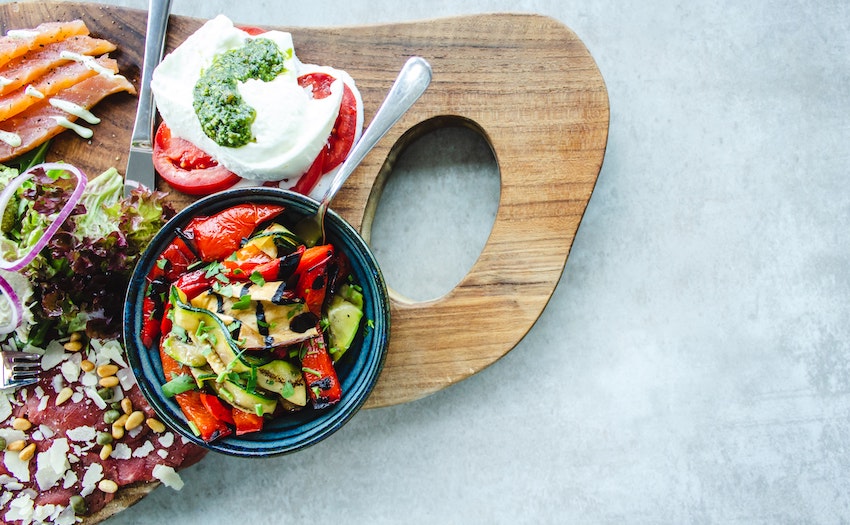Diet Plan, Foods, Health Benefits, and More

Eating healthy can be a daunting task. With so much information on diets, foods to eat, and health benefits, it takes time to figure out where to start. But the truth is that you don't have to change your entire diet overnight; even small changes can make a big difference in your overall health.
This blog post will go through the fundamentals of developing a balanced diet plan, the ideal foods for specific objectives, and the potential health advantages. We'll also discuss building an effective diet plan for you and your lifestyle. So if you're ready to start your journey towards better nutrition and improved health, read on!
In medicine, the ketogenic diet is a high-fat, adequate-protein, low-carb diet primarily used to treat children with difficult-to-control (refractory) epilepsy. The body burns fats rather than carbohydrates when there are dietary constraints.
Usually, the carbohydrates in food are broken down into glucose, which is moved throughout the body and is especially crucial for supplying the brain with energy. However, when the diet contains little or no carbohydrates, the liver transforms fat into fatty acids and ketone bodies. As they enter the brain, ketone bodies take the place of glucose as the brain's energy source.
Ketosis, a condition marked by increased ketone bodies in the blood, lowers the frequency of epileptic seizures.[1] The number of attacks decreased by at least half for about half of the children and teenagers with epilepsy who tried some variation of this diet, and the impact lasts even after stopping the diet.[2]
According to some research, adults with epilepsy may benefit from the diet, and a less rigid plan like a modified Atkins diet is just as helpful.[1] Examples of possible side effects include constipation, elevated cholesterol in older children and adults,[10] and kidney stones.[9]
The ketogenic diet is not advised for those with pancreatitis or other disorders that impair fat metabolism. People taking drugs that may interact with it should also avoid it.
What are the health benefits of the ketogenic diet?
When you eat a diet high in fat and low in carbohydrates, your body enters a state of ketosis. This means that your body starts to burn fat for energy instead of glucose. Several health benefits are associated with the ketogenic diet, including weight loss, improved mental clarity, and decreased inflammation.
What foods can you eat on the ketogenic diet?
A lot of things need to be clarified about the ketogenic diet. People often think it's a high-protein, low-carbohydrate diet, but that's not necessarily true. While you need to eat some protein on the keto diet, you can get a lot of your calories from fat. And while carbohydrates are limited on the keto diet, they are still essential to your daily intake. So, what foods can you eat on the ketogenic diet?
Fats: Healthy fats are a crucial component of the keto diet. It would help if you aimed to get 70-80% of your daily calories from fat. Good fat sources include avocados, olive oil, coconut oil, butter, and ghee.
Protein: You will need to eat some protein on the keto diet, but less than you might think. Around 20-30% of your daily caloric intake should come from protein. Good protein sources include grass-fed beef, wild-caught fish, chicken, and eggs.
Carbohydrates: Carbohydrates are limited on the keto diet, but they are still essential to your daily intake. Around 5-10% of your daily caloric intake should come from carbohydrates. Good carbohydrate sources include leafy green vegetables, cruciferous vegetables, and berries.
What are the best keto recipes?
You might seek new meals to try if you're on the ketogenic diet. Some of the top keto recipes are listed below:
- Keto Chicken Fried Rice: If you're on a diet, this dish is a terrific way to satisfy your craving for Chinese food.
- Keto Shepherd's Pie: This warming recipe is ideal for supper during the winter.
- Keto Chili: This hearty chili is excellent food on a cold winter night or game day.
- Keto Salmon with Avocado Salsa: This delectable and nutritious recipe is ideal for supper during the summer.
The ketogenic diet causes your body to go into a state of ketosis, which causes it to burn fat for energy instead of carbohydrates.
The most popular strategy to enter ketosis is to limit your daily carbohydrate consumption to 20–50 grams and consume the remaining calories from fat.
It can be beneficial to meal plan and prepare in advance if you're new to the keto diet, so you have healthy food alternatives available when you get hungry.
A low-carb diet software or tracking tool can help you stay on track, making things easier.
Above all, remember that everyone is unique and that a ketogenic diet cannot be followed in a "one size fits all" manner. Stick with what you find to be effective for you!
Are there any risks associated with the ketogenic diet?
The ketogenic diet is safe in children and adults, but there are a few potential risks. These include:
Conclusion
One must consume a nutritious, well-balanced diet for optimal health and well-being. Your body receives the nutrients it needs to operate at its peak from the proper proportion of proteins, carbs, fats, vitamins, and minerals.
With a nutritious diet plan that includes plenty of fresh fruits and vegetables and lean proteins like fish or chicken, you'll be able to maintain your weight while boosting energy and improving overall health. Remember to enjoy treats in moderation and stay hydrated throughout the day!
